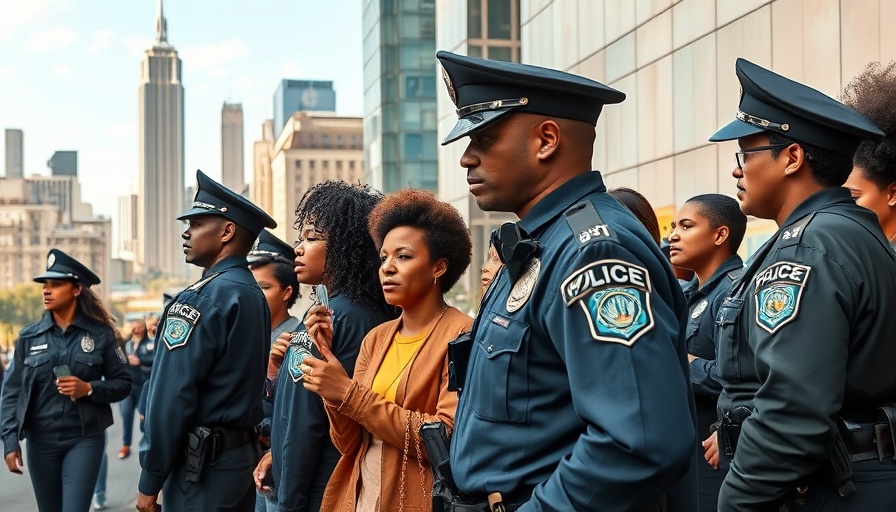
Understanding the Importance of Transparency in CPD Litigation
In the wake of growing public scrutiny over policing practices, the City of Chicago's annual reports on the Chicago Police Department (CPD) litigation represent a significant step towards accountability and transparency. Compiled in accordance with the mandates set out in the Consent Decree, these reports provide an essential window into the ongoing challenges faced by law enforcement agencies. They document civil litigation results stemming from allegations of civil rights abuses, showcasing the efforts to navigate complex issues surrounding police conduct and community relations.
The Role of Consent Decrees in Police Reform
Consent decrees serve as judicially sanctioned agreements that obligate police departments to reform practices that foster misconduct and breach civil rights. In Chicago, these decrees have triggered critical reform initiatives aimed at curtailing excessive use of force and improving police-community trust. The CPD litigation report informs not only the government and concerned citizens but also influences national conversations about police reform strategies. It is vital for garnering support for ongoing changes that prioritize procedural justice and establish clear accountability measures for law enforcement officers.
Implications for Community Policing Strategies
The CPD annual report also reflects on the broader implications for community policing. As police departments increasingly adopt community-driven approaches, the need for transparency in litigation results takes on added significance. These reports highlight whether law enforcement agencies are effectively engaging with the communities they serve, ultimately determining the trust and cooperation of residents. Successful community policing strategies require honesty about shortcomings and proactive measures to reform problematic practices, laying a foundation for shared responsibility in public safety.
Exploring the Data: Trends and Insights
The publications of the CPD litigation reports are not mere bureaucratic exercises. They provide crucial data points that can be analyzed for trends over time. This data enables police departments, policymakers, and researchers to identify patterns in allegations, revealing systemic issues that may affect recruitment, training, and crisis intervention strategies. Such insights contribute to better overall public safety data analysis, leading to recommendations that enhance officer wellness and improve police-community relations.
Real-World Impacts on Public Safety Initiatives
The fallout from CPD litigation extends far beyond the courtroom. Each case has the potential to implement changes in law enforcement practices and usher in public safety innovations aimed at preventing future issues. Without the visibility that these reports offer, it would be challenging for community members, lawmakers, and police leadership to make informed decisions related to use of force policies or technological advancements such as body camera footage. This accountability is paramount in strengthening public trust, allowing for collaborative solutions to persistent policing challenges.
Conclusion: A Call for Continuous Improvement in Policing
As Chicago continues to navigate the complexities of policing in a modern society marked by rising demands for accountability, community engagement, and safety, the CPD annual reports play a crucial role. They serve as a platform for transparency while highlighting the real-world consequences of police actions. The continuation of such reporting, not just in Chicago but across the nation, will be essential in fostering trust and driving meaningful police reform. Readers, especially those involved in policing or public policy, should closely engage with these reports and advocate for a justice system that fulfills its obligation to serve its community effectively and ethically.
 Add Row
Add Row  Add
Add 

 Add Element
Add Element 


Write A Comment